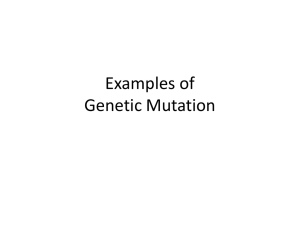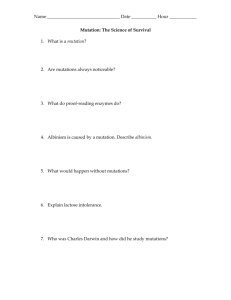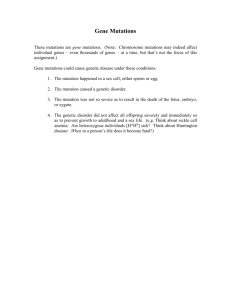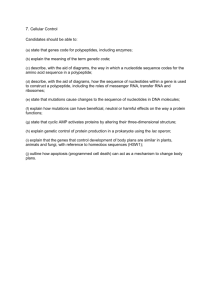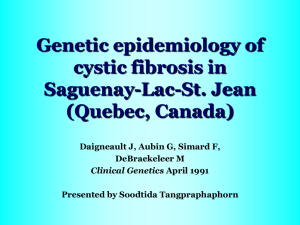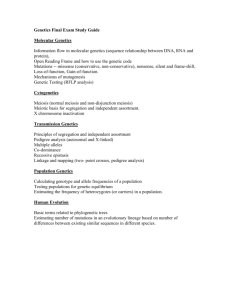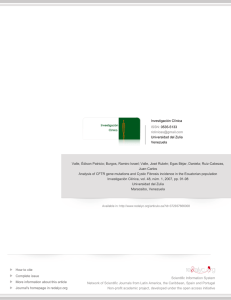Cystic Fibrosis Testing by Linear Array Panel of
advertisement
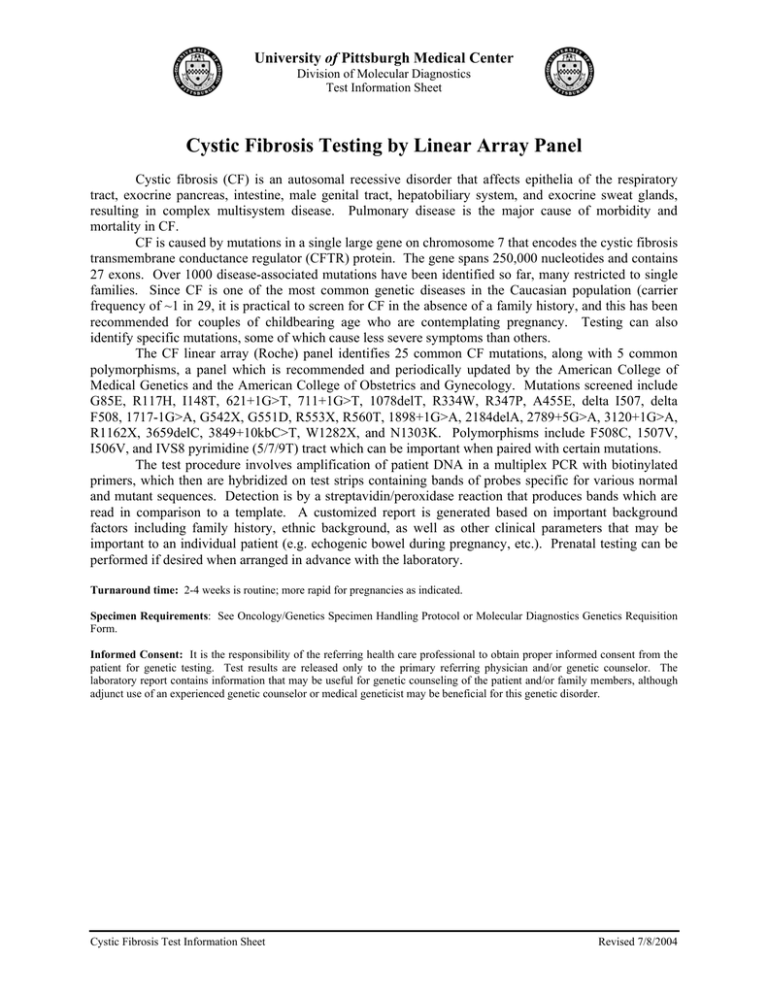
University of Pittsburgh Medical Center Division of Molecular Diagnostics Test Information Sheet Cystic Fibrosis Testing by Linear Array Panel Cystic fibrosis (CF) is an autosomal recessive disorder that affects epithelia of the respiratory tract, exocrine pancreas, intestine, male genital tract, hepatobiliary system, and exocrine sweat glands, resulting in complex multisystem disease. Pulmonary disease is the major cause of morbidity and mortality in CF. CF is caused by mutations in a single large gene on chromosome 7 that encodes the cystic fibrosis transmembrane conductance regulator (CFTR) protein. The gene spans 250,000 nucleotides and contains 27 exons. Over 1000 disease-associated mutations have been identified so far, many restricted to single families. Since CF is one of the most common genetic diseases in the Caucasian population (carrier frequency of ~1 in 29, it is practical to screen for CF in the absence of a family history, and this has been recommended for couples of childbearing age who are contemplating pregnancy. Testing can also identify specific mutations, some of which cause less severe symptoms than others. The CF linear array (Roche) panel identifies 25 common CF mutations, along with 5 common polymorphisms, a panel which is recommended and periodically updated by the American College of Medical Genetics and the American College of Obstetrics and Gynecology. Mutations screened include G85E, R117H, I148T, 621+1G>T, 711+1G>T, 1078delT, R334W, R347P, A455E, delta I507, delta F508, 1717-1G>A, G542X, G551D, R553X, R560T, 1898+1G>A, 2184delA, 2789+5G>A, 3120+1G>A, R1162X, 3659delC, 3849+10kbC>T, W1282X, and N1303K. Polymorphisms include F508C, 1507V, I506V, and IVS8 pyrimidine (5/7/9T) tract which can be important when paired with certain mutations. The test procedure involves amplification of patient DNA in a multiplex PCR with biotinylated primers, which then are hybridized on test strips containing bands of probes specific for various normal and mutant sequences. Detection is by a streptavidin/peroxidase reaction that produces bands which are read in comparison to a template. A customized report is generated based on important background factors including family history, ethnic background, as well as other clinical parameters that may be important to an individual patient (e.g. echogenic bowel during pregnancy, etc.). Prenatal testing can be performed if desired when arranged in advance with the laboratory. Turnaround time: 2-4 weeks is routine; more rapid for pregnancies as indicated. Specimen Requirements: See Oncology/Genetics Specimen Handling Protocol or Molecular Diagnostics Genetics Requisition Form. Informed Consent: It is the responsibility of the referring health care professional to obtain proper informed consent from the patient for genetic testing. Test results are released only to the primary referring physician and/or genetic counselor. The laboratory report contains information that may be useful for genetic counseling of the patient and/or family members, although adjunct use of an experienced genetic counselor or medical geneticist may be beneficial for this genetic disorder. Cystic Fibrosis Test Information Sheet Revised 7/8/2004

